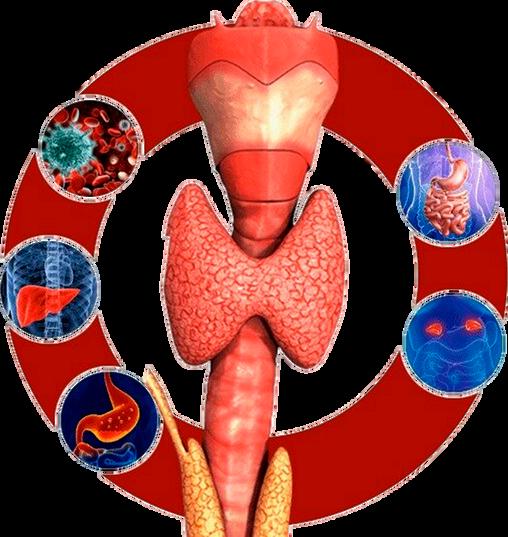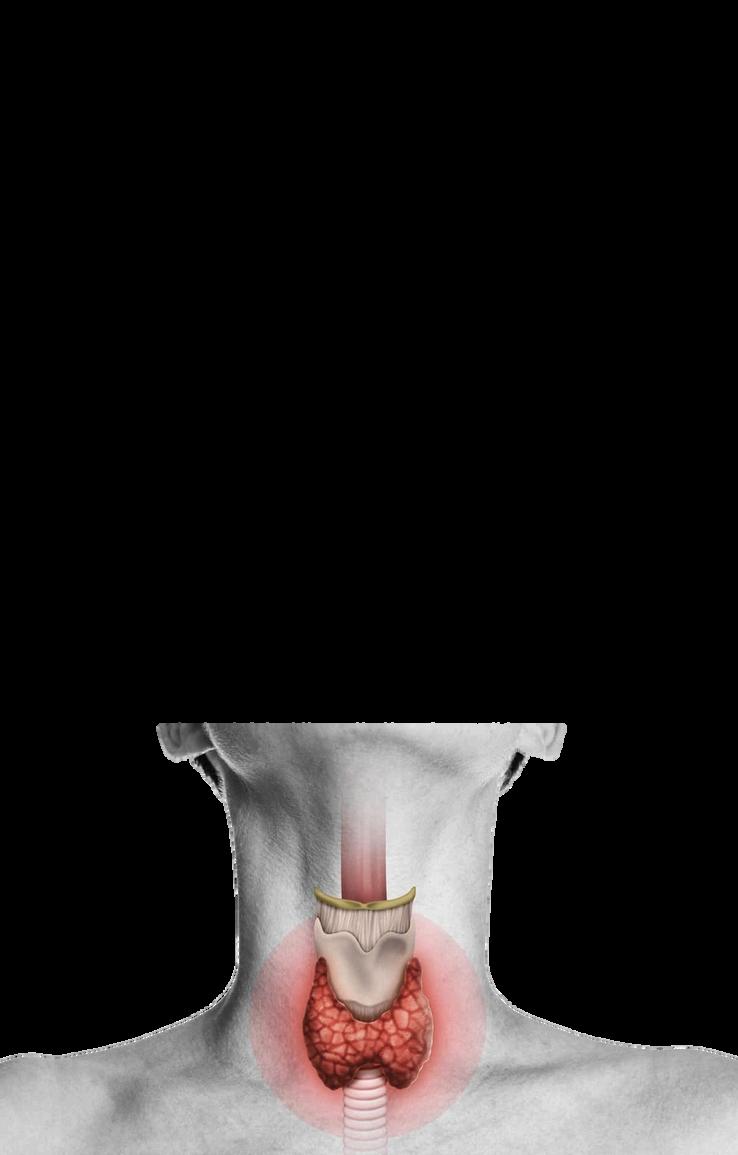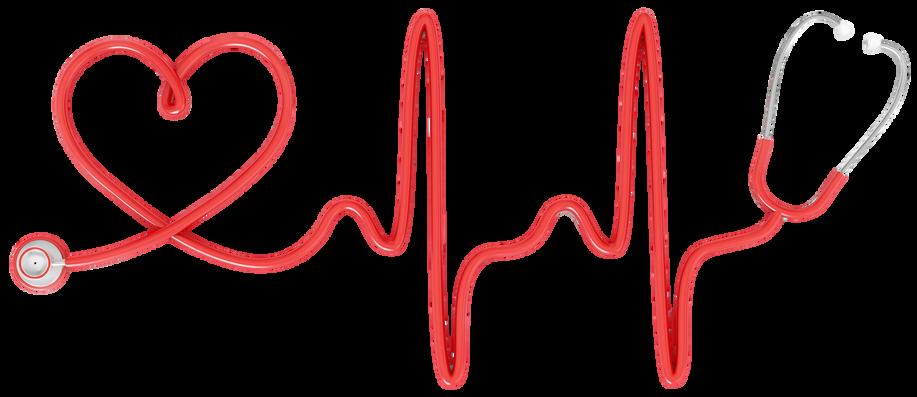MODERN THYROID








Our approach to hypothyroidism is simple:
there’s no reason to still have thyroid symptoms. Our approach combines meticulous medication management with lifestyle changes to yield the very best results.


Our top-tier progressive treatment for hyperthyroidism focuses on giving our patients a high quality of life and reducing the severity of their Grave’s disease. This combination is unique and unparalleled in the hyperthyroid community.



A different approach to Hashimoto's:
we work with you to find and remove the causes of inflammation which leads to a reduction in the severity of your Hashimoto's.
Our Goal is to work towards remission of your autoimmune disease.



The thyroid gland is a small, butterfly-shaped organ located in the front of the neck, just below the Adam's apple. It plays a crucial role in regulating various bodily functions by producing and releasing hormones. The primary hormones produced by the thyroid gland are thyroxine (T4) and triiodothyronine (T3). There is a T3 receptor on every cell in the human body so it is a very important hormone.
The thyroid gland is regulated by the pituitary gland, which is located in the brain. The pituitary gland releases thyroid-stimulating hormone (TSH) to prompt the thyroid to produce T4 and T3. If the thyroid produces too much or too little of these hormones, it can lead to conditions such as hyperthyroidism (overactive thyroid) or hypothyroidism (underactive thyroid), both of which can significantly impact overall health.


Thyroidhormones,primarilytriiodothyronine(T3)inthe activeorfreeform,isessentialforregulatingvarious physiologicalprocessesinthebody.

Thyroidhormonesincreasethebasalmetabolicrate(BMR), whichistheamountofenergyyourbodyusesatrest
Theyenhancethemetabolismofcarbohydrates,fats,and proteins,affectinghowthebodyusesandstoresenergy
Thesehormonesincreaseoxygenconsumptionintissues, leadingtogreaterenergyexpenditureandheatproduction
Inchildren,thyroidhormonesarecrucialfornormalgrowthand development,particularlyforthebrainandnervoussystem.
Theyinfluencethematurationofbonesandthedevelopment oftheskeletalsystem.
Infetaldevelopment,adequatethyroidhormonelevelsare essentialfortheformationandgrowthofthebrainandother organs.
Thyroidhormonesincreaseheartrateandforceofcontraction, leadingtoincreasedcardiacoutput
Theyenhancebloodflowbydilatingbloodvessels,whichhelps indistributingoxygenandnutrientsthroughoutthebody.
Byincreasingmetabolicactivity,thyroidhormonesplayarole inmaintainingbodytemperature.
Theystimulateheatproductioninthebodythroughaprocess knownasthermogenesis
Thyroidhormonesinfluencecognitivefunction,mood,and emotionalwell-being.
Imbalancesinthyroidhormonelevelscanleadtosymptoms suchasdepression,anxiety,orcognitiveimpairment.
Theyaffectmusclestrengthandcontraction
Adequatelevelsofthyroidhormonesarenecessaryfor maintainingmuscletoneandfunction.

Thyroidhormonesareinvolvedintheregulationofmenstrual cyclesinwomen.
Theyinfluencetheproductionofsexhormonesandare importantforfertilityandoverallreproductivehealth
Thyroidhormonesstimulatethemotilityofthegastrointestinal tract,affectingdigestionandtheabsorptionofnutrients.
Theyhelpregulatebowelmovementsandcanimpactthe metabolismofnutrients.
Thyroidhormonesplayaroleintheregulationofcholesterol levelsbypromotingthebreakdownoflipids(fats).
Theyhelpinmaintaininghealthylevelsoftriglyceridesand cholesterolintheblood.
Thyroidhormonesinfluencethehairgrowthcycle.Properlevels ofthyroidhormonesarenecessaryformaintaininghealthyhair growth.
Adequatethyroidhormonelevelsareimportantformaintaining thethickness,texture,andqualityofhair.Animbalanceinthese hormonescanleadtochangesinhairtexture,suchasmakingit dry,coarse,orbrittle.
Bothhypothyroidism(underactivethyroid)andhyperthyroidism (overactivethyroid)canleadtohairloss
Inhypothyroidism,hairmaybecomethin,dry,andbrittle,andin severecases,hairlosscanoccurfromthescalpandotherareas ofthebody
Inhyperthyroidism,hairthinninganddiffusehairlossarecommon, particularlyonthescalp.
11. Nails:
Thyroidhormonesalsoplayaroleinnailgrowth.Theyhelpin maintainingthenormalgrowthandstrengthofnails
Hypothyroidismcancausenailstobecomebrittle,thin,andprone tosplittingorbreakingeasily.Thenailsmayalso developridgesandtakeonaslowergrowthrate Hyperthyroidism canleadtosoft,thinningnailsthatmaybecomedetachedfrom thenailbed,aconditionknownasonycholysis
Theoverallhealthofthenailbed,whichistheskinbeneaththe nail,isalsoinfluencedbythyroidhormones. Poorthyroidfunctioncanresultinchangestothecolorand textureofthenails,makingthemappeardullordiscolored.
Overall,thyroidhormonesarevitalformaintainingthebody'soverall metabolicbalanceandensuringtheproperfunctioningofvariousorgans andsystems.Imbalancesinthesehormonescanleadtosignificant healthissues



Hypothyroidism, or an underactive thyroid, occurs when the thyroid gland does not produce enough thyroid hormones. This can lead to a wide range of symptoms, which can vary in severity depending on the extent of the hormone deficiency.
Common symptoms of hypothyroidism include:
General Symptoms:
Fatigue
Weight Gain
Cold Intolerance
Dry Skin
Hair Changes
Nail Changes
Mental and Emotional Symptoms:
Depression
Memory Problems/ Brain Fog
Mood Swings
Cardiovascular Symptoms:
Bradycardia
High Cholesterol
Hypertension
Digestive Symptoms:
Constipation
Weight Gain
Reproductive Symptoms:
Irregular Menstrual Cycles
Infertility
Decreased Libido
Musculoskeletal Symptoms:
Muscle Weakness
Joint Pain
Carpal Tunnel Syndrome
Respiratory Symptoms:
Shortness of Breath
Hoarseness
Other Symptoms:
Puffy Face
Goiter: Enlargement of the thyroid gland
Slow Reflexes


Hyperthyroidism, or an overactive thyroid, occurs when the thyroid gland produces too much thyroid hormone. This excess hormone accelerates the body's metabolism, leading to a range of symptoms. The severity of symptoms can vary, but common signs of hyperthyroidism include:

General Symptoms:
Weight Loss
Increased Appetite
Heat Intolerance
Sweating
Cardiovascular Symptoms:
Rapid Heartbeat (Tachycardia)
Palpitations
High Blood Pressure
Mental and Emotional Symptoms:
Anxiety
Restlessness
Insomnia
Mood Swings
Musculoskeletal Symptoms:
Muscle Weakness
Tremors
Digestive Symptoms:
Increased Bowel Movements
Nausea
Reproductive Symptoms:
Irregular Menstrual Cycles
Decreased Libido
Infertility
Respiratory Symptoms:
Shortness of Breath
Increased Respiratory Rate
Skin and Hair Symptoms:
Thin, Brittle Hair
Warm, Moist Skin
Nail Changes
Eye Symptoms (Graves' Disease):
Bulging Eyes
Eye Irritation
Double Vision
Other Symptoms:
Goiter
Fatigue
Increased Thirst and Urination



To determine if you have thyroid disease, several laboratory tests can be performed to assess thyroid function and diagnose conditions like hypothyroidism, hyperthyroidism, or other thyroid-related issues.
I believe you need thyroid hormone levels along with thyroid antibody levels and vital cofactor levels for thyroid hormone production in order to properly diagnose all thyroid disorders!
The tests I order include:

Purpose: TSH is produced by the pituitary gland and stimulates the thyroid to produce thyroid hormones (T4 and T3).
it Indicates:
High TSH: Suggests hypothyroidism (underactive thyroid).
Low TSH: Suggests hyperthyroidism (overactive thyroid).
Normal Range: Typically 0.4 to 2.0 mIU/L, but this can vary slightly depending on the lab reference range (ideally lower half of reference range).
Purpose: Free T4 is the unbound form of thyroxine, one of the primary hormones produced by the thyroid gland. It is converted to Free T3 in the blood which is the active thyroid hormone.
Low Free T4: Suggests hypothyroidism
High Free T4: Suggests hyperthyroidism.
Normal Range: Typically 1.2 to 2.2 ng/dL, depending on the lab.
Purpose: Free T3 is the active form of triiodothyronine, the most important thyroid hormone.
Low Free T3: Can indicate hypothyroidism
High Free T3: Suggests hyperthyroidism.
Normal Range: Typically 3.5 to 4.5 pg/mL, depending on the lab (ideally upper 25% of reference range if you have symptoms of hypothyroidism).
Thyroid Antibodies:
Thyroid Peroxidase Antibodies (TPOAb):
Purpose: Detects antibodies against thyroid peroxidase, an enzyme involved in thyroid hormone production.
What it Indicates: Elevated levels suggest autoimmune thyroid disease, such as Hashimoto's thyroiditis (which causes hypothyroidism) or Graves' disease (which causes hyperthyroidism)
Normal Range: Typically <9 , depending on the lab (ideally below detectable reference range)
Thyroglobulin Antibodies (TgAb):
Purpose: Detects antibodies against thyroglobulin, a protein involved in thyroid hormone production.
What it Indicates: Elevated levels can indicate autoimmune thyroid disease.
Normal Range: Typically <1 , depending on the lab (ideally below detectable reference range)
Thyroid-Stimulating Immunoglobulins (TSI) or ThyroidStimulating Hormone Receptor Antibodies (TRAb):
Purpose: These antibodies mimic TSH and can cause the thyroid to overproduce hormones
What it Indicates: Elevated levels are typically associated with Graves' disease
Normal Range: Typically <141 , depending on the lab (ideally below detectable reference range)

Purpose: Measures the inactive form of T3, which can be elevated in cases of stress, illness, insulin resistance, DM2, obesity, and other metabolic conditions.
What it Indicates: Abnormal levels might indicate an issue with the conversion of T4 to the active form of T3 -> hypothyroidism
NormalRange: Typically <14

Purpose: Vitamin B12 plays various roles in the neurologic, blood, and gastrointestinal system, and there is evidence suggesting a connection between vitamin B12 deficiency and thyroid disorders, particularly Hashimoto’s thyroiditis or Graves’ disease.
What it Indicates: Research has shown hypothyroidism can slow down gastrointestinal function, leading to issues like constipation and poor nutrient absorption. This can contribute to B12 deficiency, as the absorption of this vitamin relies on healthy stomach and intestinal function. These diseases are at an increased risk of other autoimmune conditions, including pernicious anemia, which affects B12 absorption
NormalRange> 650 (regardless of reference range)
Purpose: Vitamin D plays various roles in the immune system, and there is evidence suggesting a connection between vitamin D deficiency and thyroid disorders, particularly autoimmune thyroid diseases.
What it Indicates: Research has shown that low levels of vitamin D are often associated with an increased risk of developing Hashimoto's thyroiditis and Graves’ disease Some studies suggest that vitamin D deficiency may exacerbate the autoimmune response, leading to more severe thyroid dysfunction.
NormalRange: 60 – 100 (regardless of reference range)
Purpose: Iodine plays a crucial role in thyroid function as the thyroid gland uses iodine to produce thyroid hormones, primarily thyroxine (T4) and triiodothyronine (T3).
What it Indicates: Abnormally low levels might indicate an issue with making T4 and T3 -> hypothyroidism
Abnormally high levels might indicate an issue with making too much T4 and T3 -> hyperthyroidism
NormalRange: Typically between 65-100, depending on reference range
Purpose: Low ferritin indicates low iron stores, which can impair the activity of thyroid peroxidase, leading to reduced thyroid hormone production. Ferritin is also essential in taking free T3 into cells so thyroid hormone can work.
What it Indicates: Abnormal levels might contribute to hypothyroidism or exacerbate existing thyroid conditions.
Abnormally high levels might indicate an issue with making too much T4 and T3 -> hyperthyroidism
NormalRange: > 70, but ideally > 100 (regardless of Hbg or reference range )


Conventional treatment is with synthetic thyroid hormone replacement (levothyroxine, Synthroid, or tirosint) to normalize TSH levels, but I find these typically will not alleviate all symptoms. These contain mostly T4
Desiccated thyroid hormone replacement (NP thyroid, armour thyroid, nature thyroid) to normalize TSH levels, and I find these do alleviate more symptoms. These contain mostly T3. This means your body does not have to convert FT4 into FT3 after you take your thyroid hormone
Compounded Thyroid Hormone will allow your provider to make any combination of T4 and T3 they feel is adequate for your individual needs
Nature/ Holistic Approaches include trying to find the root cause of your elevated thyroid antibodies and fixing that problem so the antibodies go down and ultimately the thyroid will start making more thyroid hormone again on its own.
This will not work if you have had surgical removal of your thyroid gland or radioactive iodine ablation
Normalizing ferritin, iodine, vitamin d, and vitamin B12 are a crucial part in this
There are several supplements that can help this process by lowering inflammation or fixing micronutrient deficiencies (determined by labwork)
Adrenal assist, Thyroid Balance, Omegamax, Tumeric Select, Dynamic D-K2, Mighty Methylfolate, Superior Selenium Iodine
See our website for more information www.modernendocrine.com/shop


·Conventional treatment may involve
Medications like methimazole or PTU which block the thyroid’s ability to make thyroid hormone
Radioactive iodine ablation
Surgery
Nature/ Holistic Approaches include trying to find the root cause of your elevated thyroid antibodies and fixing that problem so the antibodies go down and ultimately the thyroid will stop over making thyroid hormone

If you found this eBook helpful please leave me a review and share this eBook with others!
Feel free to follow me on social media, subscribe to my weekly podcast series, or check out my website. Links are below:



Disclaimer: The information presented, including any materials discussed, referenced, or linked, within this ebook are for general educational purposes only—NOT the practice of medicine. No doctor-patient relationship is formed from you reading this book or utilizing any of the information provided. I am a doctor, but I am not talking to you as your doctor. The information provided is not intended to diagnose or treat health problems, or take the place of the professional medical care provided by your doctor If you are experiencing any health problems including problems you believe have been touched upon in any respect within this ebook you should consult your doctor about the problems without delay You may ask your doctor whether he or she believes the information I have provided would be helpful to you, but you should still consult your doctor immediately and follow his or her medical advice as your treating physician. I’m just here to provide you basic knowledge about the issues we discuss so you are more aware of them and can better discuss them with your doctor